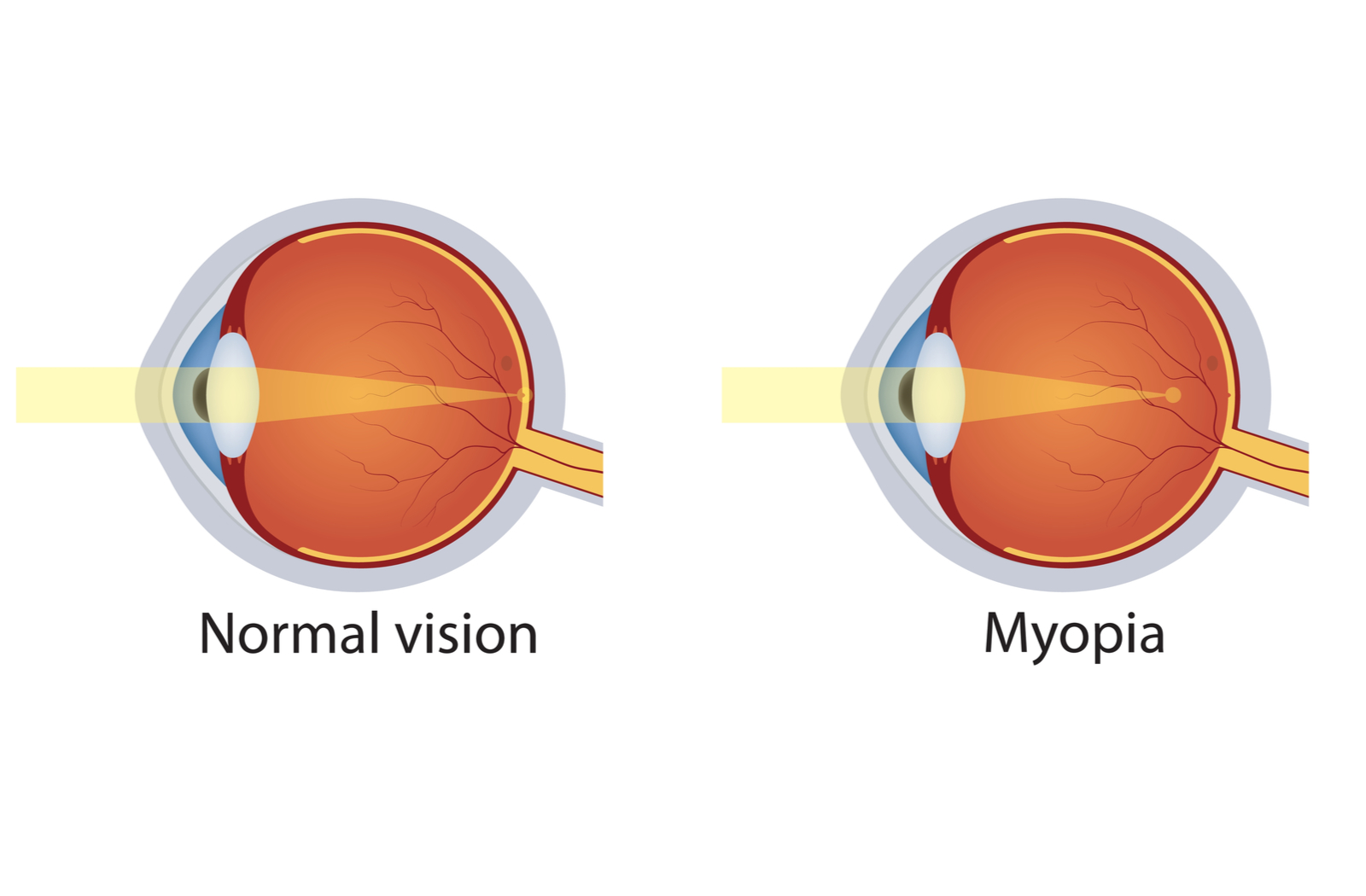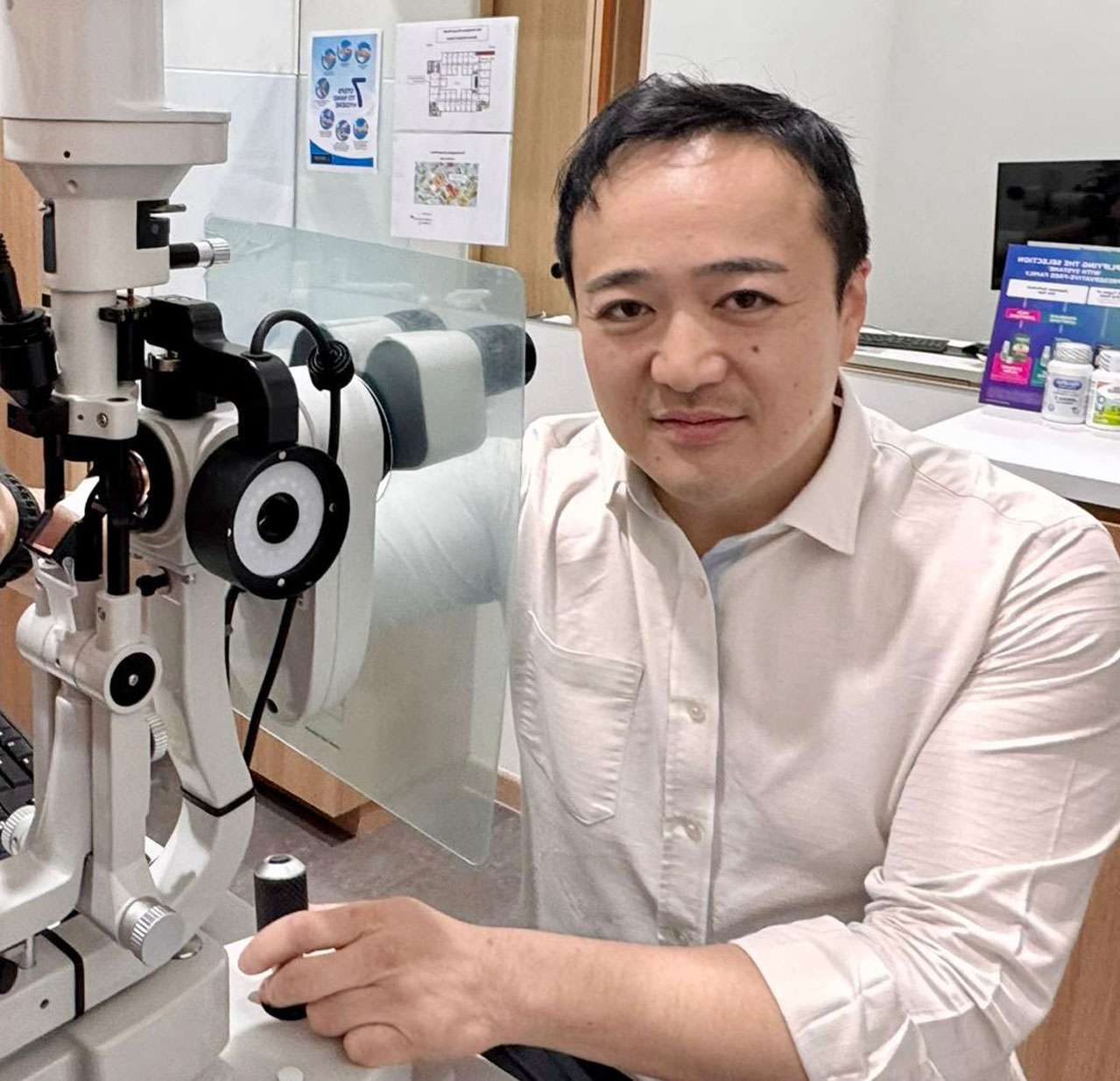Seeing Clearly Up Close, but Struggling with the Distance?
Myopia, or short-sightedness, is one of the most common refractive errors globally, and it’s becoming increasingly prevalent, especially in urban environments like Singapore. While many people manage well with glasses or contact lenses, high or progressive myopia may increase the risk of eye complications later in life.
At London Eye & Retina, we provide tailored care for individuals with myopia, from diagnosis and visual correction to monitoring for long-term retinal health.
What Is Myopia?
Myopia occurs when the eyeball is too long or the cornea is too curved, causing light rays to focus in front of the retina rather than directly on it. This makes distant objects appear blurry, while close-up tasks like reading or screen use remain clear.
It typically begins in childhood or adolescence and may progress with age, especially in school-going children or those spending long hours on near work.
What Causes Myopia?
Myopia develops due to a combination of genetic and environmental factors. These include:
- Family history (having one or both parents with myopia)
- Prolonged near work (e.g. reading, studying, screen use)
- Limited outdoor activity during childhood
- Rapid eye growth during development
In recent years, myopia has been increasing in younger age groups, particularly in East Asia.
Types of Myopia
There are different classifications of myopia:
- Low to moderate myopia: up to -6.00 dioptres
- High myopia: greater than -6.00 dioptres
- Pathological or degenerative myopia: associated with structural changes in the retina and risk of complications
Early identification and regular eye exams are essential, particularly for children and young adults.
Symptoms to Watch For
Common symptoms of myopia include:
- Blurred distance vision (e.g. road signs, whiteboard in school)
- Squinting or eye strain when trying to see far away
- Headaches, especially after prolonged screen time
- Needing to sit closer to screens or books
If your vision changes frequently or seems worse in low light, it’s worth getting your eyes checked.
How Is Myopia Diagnosed?
Myopia is diagnosed through a comprehensive eye exam. At London Eye & Retina, we perform:
- Visual acuity testing
- Refraction assessment to determine the degree of myopia
- Slit-lamp examination
- Dilated retinal examination to assess eye health, especially in high myopia
- Axial length measurement (if needed) to monitor progression
We also screen for any signs of retinal thinning, lattice degeneration, or early tears that can be associated with higher degrees of myopia.
How Is Myopia Managed?
Myopia can be corrected with:
- Spectacles – a simple and effective way to correct distance vision
- Contact lenses – for more active lifestyles or specific needs
- Refractive surgery – such as LASIK, SMILE, or TransPRK, for suitable adults
- Myopia control options (for children) – including atropine eye drops, orthokeratology (Ortho-K), or specially designed contact lenses to slow progression
At London Eye & Retina, Dr. James Ng will guide you through these options based on your age, lifestyle, and long-term eye health.
When Myopia Is More Than Just a Refractive Error
High myopia isn’t just about needing thicker glasses, it can increase the risk of retinal detachment, macular degeneration, glaucoma, and cataracts. That’s why regular retinal monitoring is especially important for those with high or progressive myopia.
We offer retinal screening and OCT imaging to track structural changes and detect complications early, when they are most manageable.
Keep an Eye on Your Vision, And Your Future
Whether you’ve worn glasses your whole life or are noticing signs of myopia for the first time, proper eye care makes a difference. With early diagnosis, correction, and ongoing monitoring, you can protect your sight for the long term.
Book a comprehensive eye exam at London Eye & Retina to assess your myopia and discuss your options for vision care.
Personalised Vision Management in Singapore


